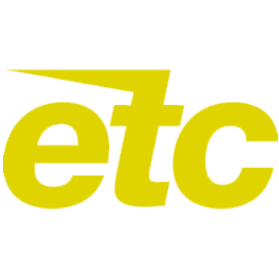
About the Edmonton Trolley Coalition
The Edmonton Trolley Coalition began in 1999 at a time when Edmonton operated a sizeable electric trolleybus system in the city core. The organization was founded by a group of concerned citizens which included former Edmonton City Councillor Tooker Gomberg, University professors George Buck and Tony Kernahan, retired ETS Supervisor of Transit Planning Robert Clark, Alberta Environment Network Executive Director Barry Breau and Wind Song Power Co-op Associates Jerry and Betty Paschen. The group intended to voice public support for the electric trolleybus system, as it had become apparent that city administrators were allowing it to fall into a state of decline.
When Edmonton‘s electric bus system came under threat of closure in 2003, the organization attracted many new members from affected communities as well as input and involvement from a significant number of community groups including the
- Allendale Community League
- Alberta Avenue Community League
- Belgravia Community League
- Central McDougall Community League
- Downtown Edmonton Community League (DECL)
- Garneau Community League
- Inglewood Community League
- McCauley Community League
- McKernan Community League
- Old Strathcona Business Association
- Oliver Community League
- Queen Alexandra Community League
- Westmount Community League
- Windsor Park Community League
- 97 Street and Area Business Association (BRZ)/Chinatown and Little Italy Business Association (BRZ)
- 124 Street and Area Business Association (BRZ)
Through the efforts of the Edmonton Trolley Coalition and community groups, as well as other organizations like the Citizens for Better Transit and the Edmonton Transit System Advisory Board, City Council granted the trolley system a reprieve to keep it operating until 2008, and city administration was required to secure and test a new trolleybus in Edmonton.
The Edmonton Trolley Coalition was incorporated as a non-profit organization under the Societies Act in January 2006, just as the Edmonton’s electric bus system faced a new threat.
The threats to electric bus transit in Edmonton drew the attention of people across North America and abroad, many of whom had professional backgrounds in engineering and transit operations. The wisdom and expertise of these professionals was of great value to the Edmonton Trolley Coalition in countering arguments put forward by city administrators in their ongoing push for the conversion of electric bus operations to diesel.
In 2008, Council was to decide the future of the existing electric trolleybus system. Citizens supporting the electric trolleybus system prevailed during the debates, however, the bid to retain and renew the system with new vehicles was lost in a 7-6 vote after one councillor withdrew support following a brief meeting with the mayor. Electric bus operations were to continue to 2010, but administrators pressed council to end operations early due to a budgetary shortfall. Electric trolleybus operation ended in May of 2009, and all 140 km of supporting infrastructure were rapidly dismantled.
The end of electric trolleybus operations did not lead the Edmonton Trolley Coalition to disband. Although the involvement of community organizations tapered off, the Edmonton Trolley Coalition, with a core membership, has continued to operate with its mandate to promote and inform about electric public transit modes. The organization has membership both locally and abroad, and continues to produce a newsletter focussed on happenings in the realm of electric transit around the world.
